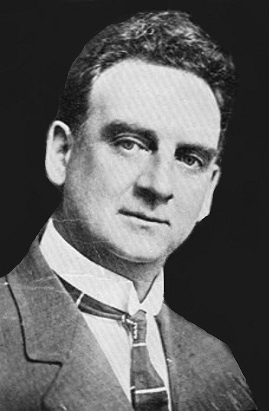Justus D. Barnes (Justus D. Barnes)

Actor. A rugged heavy of early silent cinema, he played the lead bandit in the landmark “The Great Train Robbery” (1903), reputedly the first narrative film. It was his screen debut. Barnes was a veteran stage performer when Edison director Edwin S. Porter cast him in his 10-minute western epic; sporting a fake bushy mustache and a sullen glower, he certainly looked the part of a desperado. The final close-up of Barnes firing his six-shooter at the unsuspecting audience created a sensation and remains an indelible image in movie history. Following another spell in the theatre he joined the Thanhouser studio in 1910 and played villains, supporting parts and occasional leads in 80 films. They include “David Copperfield” (1911), “Nicholas Nickleby” (1912), “When the Studio Burned” (1913), “A Dog of Flanders” (1914), and “Fear” (1916). A 1914 issue of “Reel Life” magazine offered a rare peek at the actor’s personal life, noting that he still traveled by horse and buggy: “Mr. Barnes loves horses and has no use for automobiles or aeroplanes”. With Thanhouser’s fortunes fading, Barnes was released from his contract in 1917; his movie career ended where it began, at the Edison studio, with “Cy Whittaker’s Ward” (1917). He then disappeared from the entertainment scene. By 1930 he was working as a milkman in Weedsport, New York, his home for the rest of his life. In 1998, Barnes in his iconic role appeared on a US postage stamp honoring “The Great Train Robbery”. (bio by: Bobb Edwards)
Born
- October, 02, 1862
- USA
Died
- February, 02, 1946
- USA
Cemetery
- Weedsport Rural Cemetery
- USA

